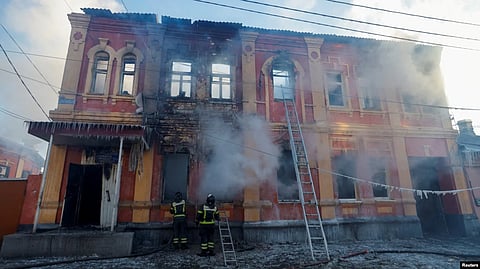Residents of Kyiv and other cities across Ukraine have scrambled for cover as Russia launched another barrage of missiles at the country after explosions were reported at two airfields in central Russia.
Air-raid sirens could be heard in many parts of the country on December 5 with officials warning people to shelter from missiles that "have already been launched."
"Don't ignore the alarm," said Andriy Yermak, head of the Ukrainian presidential office said in a tweet.
Reports on social media showed hundreds of people sheltering in the subway stations in the capital Kyiv.
Kyiv's regional governor, Oleksiy Kuleba, said in a message on Telegram that rockets were "moving toward the region" and asked people not to post photographs of what was happening online.
In recent weeks, Russia’s military focus has been on striking Ukrainian infrastructure nationwide, pressing an offensive in the Donetsk region city of Bakhmut and shelling sites in the city of Kherson, which Ukrainian forces liberated last month after an 8-month Russian occupation.
Earlier on December 5, at least one large explosion occurred at a Russian military air base in the Saratov region, about 600 kilometers east of Ukraine, while another blast was reported by Russian state media at an airfield outside Ryazan, southeast of Moscow.
Social media posts by residents in the cities of Engels and Saratov seemed to show a large explosion at the Engels-2 air base at about 6 a.m. local time on December 5.


